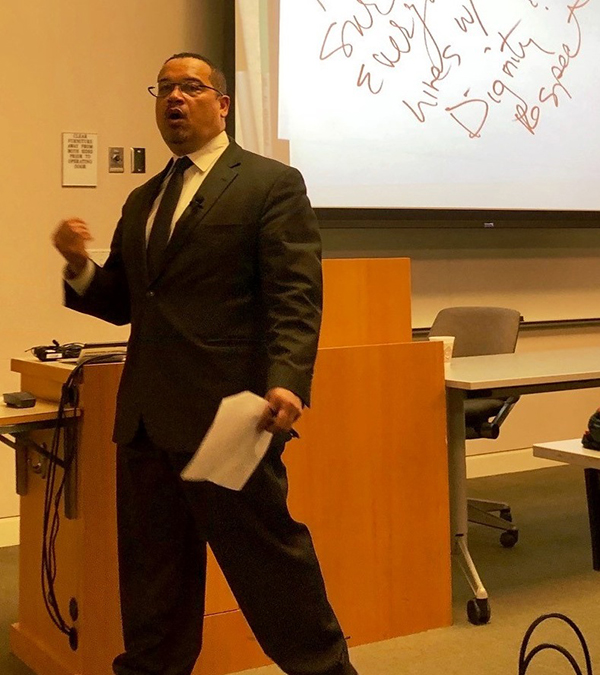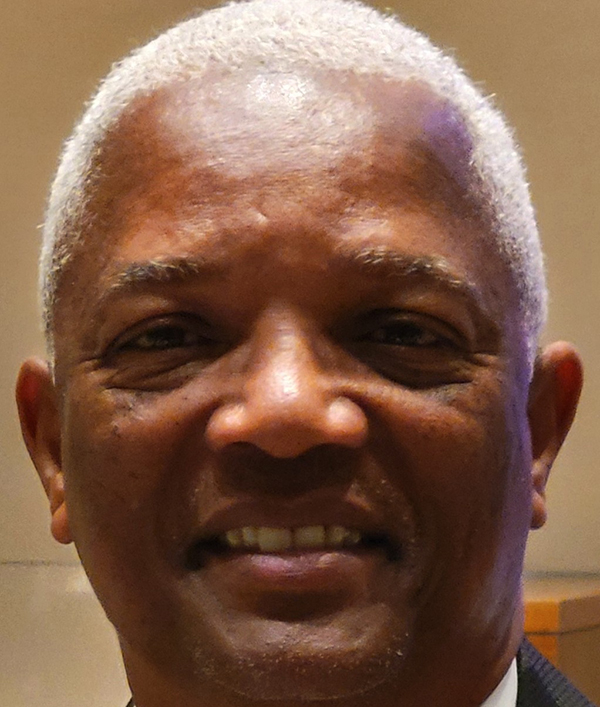By Earl Ofari Hutchinson
Contributing Columnist
I’m not trying to be funny, cute or facetious, but I must ask this question: Did George Floyd ever happen?
I ask because of the grim, horrific and slightly shocking recent release by the Washington Post of its database that tracked police killings of civilians in 2022. They hit a record high. Put bluntly and brutally, police shot and killed more civilians in 2022 than in any other year.
Now bear in the mind the record number of police killings of civilians came a scant two years after the police murder of Floyd sent shock waves globally. It propelled hundreds of thousands of persons into the streets, demanding an end to police violence, a defunding of the police and massive reform of policing in America.
Yet the killings continue unabated. Even worse, the Post found that in nearly 100% of the killings — many, to say the least, dubious — there was zero action taken against the officers. And even worse, in one-third of the killings there was no lethal threat to the officers when the killings took place.
That makes it seem that Floyd’s death and reactions to it never happened. Or, at best, it was just a passing moment in the clamor for police reform that flickered out quickly. So where does that leave us on the issue? And what can be done?
The most obvious is getting the House-passed George Floyd Police Reform Bill back on track for final approval. It was passed in 2022 and has been bottled up by Republicans in the Senate for the past two years.
The bill would partially lift the legal shield that bars lawsuits against cops who overuse deadly force. There are other issues the bill addresses, such as establishing guidelines for what is a legally acceptable level of use of force and on what grounds an officer can be prosecuted. The inference is that these are hurdles that can be overcome through intense negotiation and compromise.
Another is compelling police officials to look hard at the ways that they punish officers who use excessive force. That strikes to the heart of the issue of accountability which, as the Post report on police killings makes troublingly clear, is almost non-existent.
There are more steps that can be taken to save the lives of the George Floyds of the world. They do not require passage of a congressional bill. They certainly do not require yet another commission or study.
One is to do what the Minneapolis police chief did after he saw the video showing Derek Chauvin choking the life out of Floyd, and three other officers in the same video piling on Floyd. He promptly fired them.
Any officer who assaults or assails an unarmed civilian after the suspect has complied and is non-resisting must be immediately suspended or fired.
Another is to do what former President George H.W. Bush immediately did after he witnessed the videotaped beating of Rodney King in 1991. He authorized a federal investigation, and when the four cops who beat King were acquitted in state court he authorized a federal prosecution.
Local county prosecutors and district attorneys must follow that lead and slap charges on an officer who assaults or assails an unarmed civilian after the suspect has complied and is non-resisting. When local prosecutors refuse to prosecute, then the Justice Department or, as in Minnesota, the state’s attorney general must promptly intervene and bring charges against the officer.
The Justice Department and state attorneys general are empowered to bring charges under statutes that prohibit officers from committing misconduct and prescribe penalties for law-breaking under color of law.
Yet another is an absolute prohibition of the blue code of silence. Countless studies have shown that, from police chiefs and commissioners down to the beat cop, when it comes to reporting misconduct by fellow officers they will lie, go mute, develop vision problems, wink, nod, and as in Minneapolis, bum rush a helpless Floyd on the ground. The term for this dirty business is “testi-lying.”
Any officer who witnesses misconduct then must be legally obligated to report it. Failure to do so should result in discipline ranging from suspension to dismissal.
Police chiefs and commissioners must make it clear there will be no compromise on this, and that officers who report misconduct will be fully backed and protected by the brass.
More studies and commissions are not needed to impose this: mandatory suspension or firing, mandatory prosecution of wanton officer misconduct, and mandatory reporting of officer misconduct by other officers.
President Bush was deeply concerned that the King beating had caused an even deeper, more volatile, and dangerous rift between police and African Americans. The riots after the cops were acquitted underscored that.
The massive civil unrest after Floyd was murdered did the same. The ways to stop the killing of future George Floyds then are available. The grim Post report on the surge in police killing is yet another loud cry to take action.
Earl Ofari Hutchinson is an author and political analyst. He is the host of the weekly Earl Ofari Hutchinson Show on KPFK 90.7 FM Los Angeles and the Pacifica Network Saturdays at 9 a.m.










